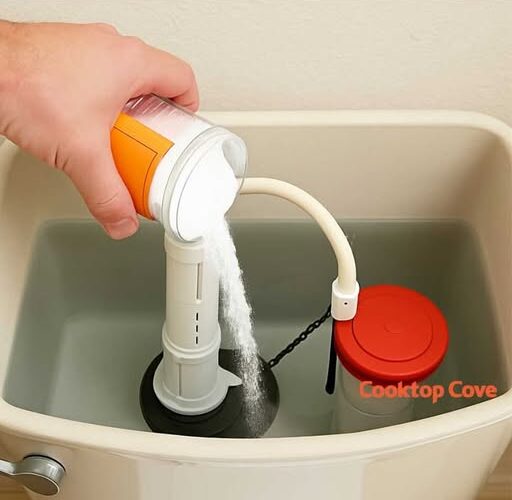Introduction
Baking soda (sodium bicarbonate) is a humble household staple famously used in cooking, cleaning, and deodorizing. Among its many cleaning purposes, adding baking soda to the toilet tank has gained popularity as a gentle, affordable, and effective method for maintaining a fresher and cleaner toilet. This simple practice helps reduce odors, mineral buildup, and staining—enhancing the overall upkeep of your bathroom with minimal effort.
Origin
The use of baking soda as a cleaning aid dates back to the early 20th century when it became widely available for home use. Its natural alkalinity made it a preferred cleaning ingredient long before commercial cleaners dominated the market. The toilet-tank trick likely evolved out of traditional household cleaning practices, where baking soda was used to neutralize odors and remove mineral residue in water systems.
Cultural Significance
Across many cultures, maintaining a clean and fresh bathroom reflects good hygiene, hospitality, and respect for the household. Natural cleaning solutions—especially in eco-conscious homes—have become symbols of sustainable living. Baking soda, an inexpensive and widely accessible ingredient, fits into the movement toward safer, greener cleaning practices that avoid harsh chemicals.
Optional Additions
- A few drops of essential oil in the bowl (not tank) for fragrance
- White vinegar (used separately—not simultaneously—to deep clean)
- Soft brush for occasional scrubbing of tank walls
Tips for Success
- Do not mix baking soda with other chemical cleaners in the tank
- Use consistently—every 1–2 weeks—to maintain results
- Flush once after adding to distribute evenly
- Avoid using with vinegar at the same time to prevent foaming inside the tank
- Check manufacturer recommendations if you have a specialty toilet
Instructions
- Remove the toilet tank lid and set it aside carefully.
- Sprinkle ½–1 cup of baking soda directly into the tank.
- Let it sit for at least 1 hour to dissolve and neutralize odors.
- Flush the toilet to distribute the solution through the system.
- Repeat every 1–2 weeks for best results.
Description
Adding baking soda to the toilet tank provides mild cleaning and deodorizing benefits. It gently dissolves mineral residue, reduces unpleasant smells, and helps naturally freshen the internal tank environment without damaging components. This method enhances flushing efficiency and prevents buildup without relying on harsh chemical cleaners.
8 Reasons Why It’s a Must-Do Trick
- Neutralizes unpleasant odors
- Helps prevent mineral buildup
- Gentle, noncorrosive cleaning
- Reduces rust and hard-water stains
- Improves flush performance
- Safe for septic systems
- Non-toxic alternative to chemical cleaners
- Affordable and convenient maintenance
Nutritional Information
(Not edible—however, here are chemical-property notes)
- Primary compound: Sodium bicarbonate
- Key properties: mildly alkaline, mild abrasive, deodorizing
- Environmental impact: low; biodegradable
Conclusion
Baking soda is a gentle, cost-effective, and eco-friendly way to improve toilet cleanliness. By reducing odors, buildup, and stains while protecting toilet components, it becomes a practical addition to regular bathroom maintenance. Its safety and simplicity make it a trusted method in households around the world.
Recommendation
Use baking soda in your toilet tank every 1–2 weeks, and supplement with periodic deep cleaning as needed. Avoid mixing with harsh chemicals and use vinegar separately if additional cleaning power is required. For households seeking an affordable, safe, and sustainable cleaning method, this simple trick is highly recommended.
Embracing Healthful Indulgence
Embracing small, mindful routines—even in everyday tasks like bathroom maintenance—can promote a healthier and more pleasant home environment. Introducing natural solutions such as baking soda reflects a growing appreciation for simple, non-toxic living. By choosing gentle ingredients, you care not only for your home, but also for your wellbeing and the planet—allowing yourself the comfort of a fresh, clean space with minimal effort.
